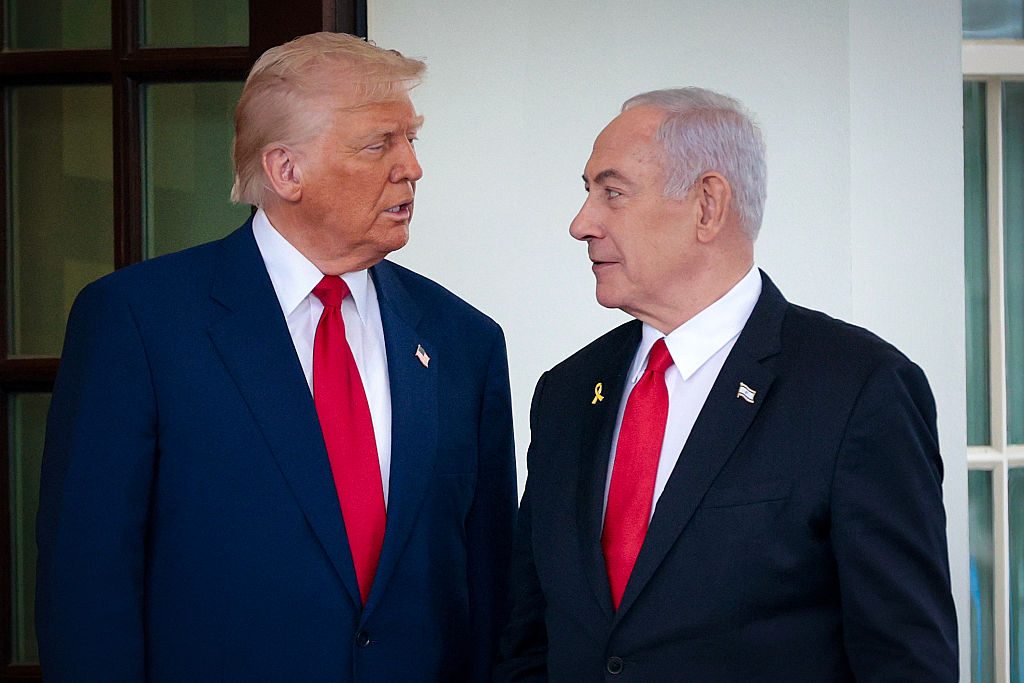Negotiators from Hamas, the Israeli government and the United States today arrived in Cairo to thrash out the final details of a peace plan. After many false dawns, an agreement here could bring two years of bloodshed to an end.
According to reports in Israel, a breakthrough came when Trump realised that his one-man fixer Steve Witkoff was out of his depth, and added Jared Kushner to the negotiating team. It might be surprising that Kushner, whose great success in life is marrying Ivanka Trump, could have made the difference in such an intractable situation. Yet he has a greater familiarity with Benjamin Netanyahu, not to mention longstanding business contacts in the Arab world.
Although all parties have agreed in principle to the “20-Point Plan for Peace”, the latest round of talks aims to clarify the initial steps — specifically the IDF withdrawal, hostage release, and prisoner exchange. There is lots of positive momentum, with declarations of willingness coming from all sides and Netanyahu publicly stating that he hopes to have all the hostages returned, living and dead, by the festival of Sukkot on Tuesday.
The US President’s public statements, in particular, have put pressure on Bibi to accede. The Israeli PM is going along with this plan partly because he reckons it will make Hamas seem like the holdouts, and increase Trump’s pressure on the terrorist group to make further concessions. Both the Israeli government and Hamas are wary of the war ending, which would leave each to face the political consequences of the past two years. Yet since neither wants to be seen by Trump as blocking the agreement, they are both pressing ahead.
There are still many issues to overcome. Hamas has declared its willingness to release all the hostages, but not to do so within 72 hours. And while the group’s leaders theoretically accept disarmament, they are insisting that they should be able to keep “defensive” weapons, such as personal firearms. They also want Gaza to be governed by a Palestinian body, not the proposed coalition of Arab nations, presumably because they will be better able to infiltrate and take over the former. Israel, for its part, has refused to state exactly which Palestinian prisoners it will release. And even if the first phase goes ahead, Hamas is not going to accept its own destruction; nor can Bibi allow even the perception that the group remains intact.
If it is going to give up all the remaining hostages, the only asset it currently holds, Hamas must think that Trump can restrain Israel afterwards. For his part, Netanyahu appears to think that he would have enough diplomatic and military latitude to continue sporadic strikes at Hamas even after a ceasefire, as has been the case with Hezbollah. In a statement this week, Bibi said that Hamas will be disarmed and the Strip will be demobilised “either the easy way, or the hard way, but it will be done”.
However, this might be hard to square with Israeli public opinion. If 20 surviving hostages are returned to their families, and the bodies of the abducted Israelis recovered, then while some elements of Israeli society will call for a renewed offensive, they will be in a minority. Relief and exhaustion will set in motion momentum for the end of the conflict, irrespective of vocal hardliners.
It should not be underestimated how crucial Trump has been to this process. Had he not run out of patience with Netanyahu, then the war would have accelerated, with a full-scale occupation of Gaza City. In one of his Truth Social posts, alongside threatening that he “will not tolerate delays”, the US President also promised that “everyone will be treated fairly”. This implied equivalence of Hamas and Israel would have been met with furious denunciations had it been made by any other US president, to say nothing of Trump’s comment that Hamas is “ready for peace”.
This shows the impact Trump has had on a Middle East mired in a stultifying status quo, which Bibi was more than happy to accept — until 7 October 2023 — and which previous US presidents were unable or unwilling to overturn. Neither Barack Obama, deferential to the traditions and “best practices” of the State Department, or Joe Biden, whose dewy-eyed appreciation of Israel is several decades out of date, would have had the same impact.
Trump does not suffer from the constraints of his predecessors. Unrestrained by loyalty to any country, institution or person beyond himself, unmoved by accusations of antisemitism or Islamophobia, he can do and say what he wants. The Israel-Palestine conflict has never known such a mediator, and that is why peace may be at hand.

